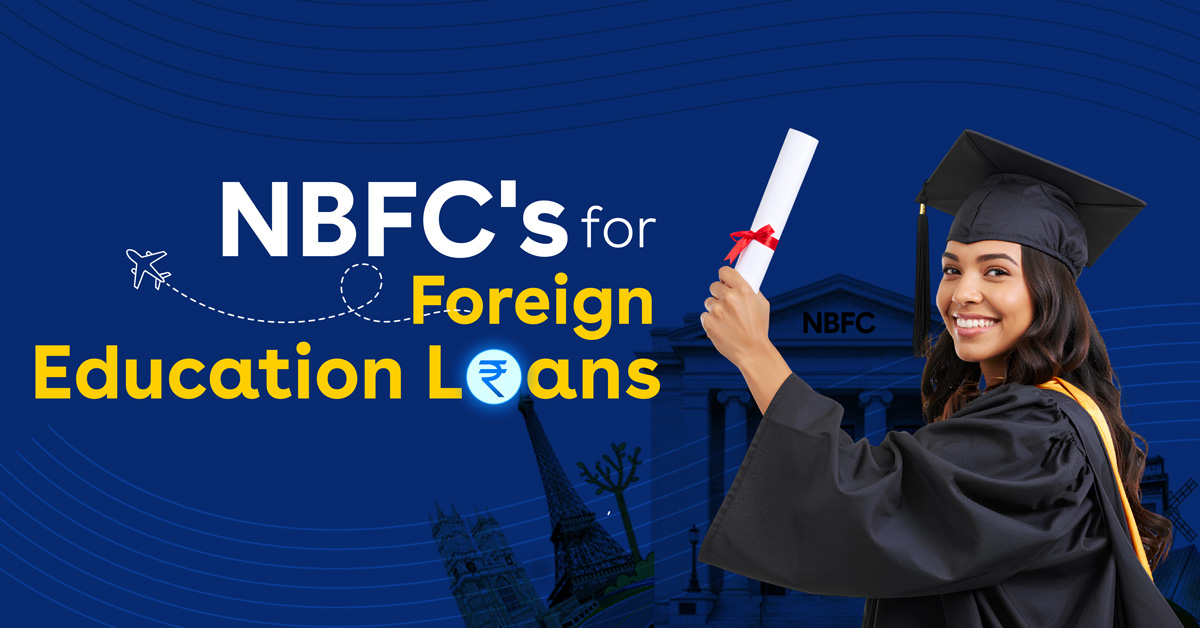Oct 08, 2025
Education Loan for Germany: Cost, Top Lenders, Eligibility & More
Germany’s higher education system is just like its Autobahn – smooth, fast, and designed to get you to your career destination quicker. No wonder over 400,000 international students choose Germany every year. What makes it even more attractive is the country’s low tuition fees aspect and nearly 50 Universities that consistently rank among the World's Best.
But low tuition doesn’t mean zero expenses, right? There are plenty of other costs waiting for you – from food and accommodation to health insurance, visa fees, and more. And that is where an overseas education loan for Germany steps in to make studying in Germany feasible.
So, what are the actual costs you need to plan for while studying in Germany? And how can an overseas education loan help you manage them without stress? That is exactly what this article is all about!
Cost to Study in Germany for International Students
Low tuition sounds great, but what about rent, food, and that mandatory blocked account? Here is a complete snapshot of the costs you need to plan for.
|
Expense Category |
Estimated Cost |
Notes |
|
Tuition Fees |
|
Check the specific program for exact fees. |
|
Semester Contribution |
€100 – €350 per semester |
|
|
Living Expenses |
€1,150 per month |
|
|
|
|
Required proof of funds for visa/residence permit. |
|
Health Insurance |
€120 – €130 per month |
|
|
|
€75 – €110 (one-time) |
|
|
Other Costs |
|
Extra budget recommended upon arrival. |
So, you see, there are a lot many expenses other than tuition costs, and that is exactly why most students choose to take an overseas education loan for Germany.
Types of Education Loan for Germany
When planning your studies in Germany, understanding the types of education loans available is key. Broadly, loans are categorized into two types based on collateral requirements.
Collateral Loans: These loans require you to pledge an asset such as property, fixed deposits, or other valuables as security. They usually offer lower interest rates and longer repayment periods, making them suitable for students seeking larger loan amounts.
Non-Collateral Loans: Also known as an unsecured loan, these do not require any assets as security. They are processed faster and are ideal for students who need quick funding, though generally come with stricter eligibility criteria, and the student loan interest rates are slightly higher compared to Collateral loans.
So, collateral or no collateral – the choice is yours. But who offers the best deals, and from which banks or lenders should you start your search to make your dream of studying in Germany possible? Let us find that out in the next section.
Top Banks & Financial Institutions Offering Education Loan for Germany
From public sector Indian banks to international lenders, listed below are the institutions that provide a range of secured and unsecured education loan for Germany.
|
|
Top Banks/Institutions |
Secured Loan Limit |
Unsecured Loan Limit |
|
Public Banks |
State Bank of India |
Up to Rs. 3 Cr |
|
|
Bank of Baroda |
Up to Rs. 60 L (Non-Premier)
|
- |
|
|
Union Bank of India |
Up to Rs. 1.5 Cr |
Rs. 30 L (Top 100 Universities)
|
|
|
Private Banks |
Axis Bank |
Up to Rs. 1.5 Cr |
Rs. 75 L (Prime D & E)
|
|
ICICI Bank |
Up to Rs. 2 Cr |
Rs. 85 L (USA Non-Prime) Rs. 65 L (Others)
|
|
|
Yes Bank |
Up to Rs. 1.5 Cr |
Rs. 50 L (B Category) Rs. 40 L (C Category) Rs. 25 L (D Category)
|
|
|
NBFCs |
Avanse |
Up to 100% of education cost |
Rs. 40 L (Others)
|
|
Credila |
Up to 100% of education cost |
Rs. 40 L (Others)
|
|
|
Auxilo |
As per student's requirement |
RS. 25 L (Others)
|
Now that you know the leading banks and financial institutions that can fund your studies in Germany, let us look at the eligibility criteria you need to fulfill before applying.
Eligibility Criteria for Education Loan for Germany
Before applying for an overseas education loan, it is important to understand the education loan eligibility set by lenders. While the exact conditions may vary slightly across banks and financial institutions, most lenders generally require:
Indian Citizenship: The applicant should be an Indian citizen.
Confirmed Admission: A confirmed offer letter from a recognized German university or college.
Academic Performance: A strong academic record and relevant entrance test scores (if applicable).
Co-applicant Requirement: A parent, guardian, or close relative with a stable income is usually mandatory.
Age Limit: The applicant should generally be between 18 to 35 years old (varies by lender).
How to Apply for an Education Loan for Germany?
Applying for a study abroad loan involves a structured process. Here is how it typically works:
Research & Compare: Start by comparing banks, NBFCs, and international lenders to find the best interest rates and terms.
Check Eligibility: Ensure you meet all the criteria before moving ahead.
Prepare Documents: Collect all necessary documents such as admission letter, academic records, and financial documents.
Submit Application: Apply online or visit the lender’s branch with complete documents.
Loan Sanction: After verification, the bank issues a sanction letter mentioning the approved amount, interest rate, and repayment terms.
Disbursement: Funds are either transferred directly to the university or to your account as per the lender’s policy.
Typical Timeline: The entire process usually takes 7 - 15 working days if all documents are in order.
Documents Required for Education Loan for Germany
Having the right documents in place ensures a smooth application process. Commonly required documents include:
Admission Letter from a recognized German university.
Detailed Fee Structure issued by the university.
Academic Records (mark sheets, certificates, entrance exam scores).
Identity & Address Proof (Aadhaar, Passport, PAN Card).
Co-applicant’s Financial Documents (ITR, salary slips, bank statements).
Collateral Documents (if applying for a secured loan).
Proof of Blocked Account or Income Source for visa requirements.
Eligibility? Checked. Documents? Sorted. Process? Understood. Next, let us explore how you can make your education loan approval process smoother and faster.
Tips to Increase Chances of Education Loan Approval for Germany
Here are some practical tips to get your overseas education loan for Germany approved:
Maintain a Good CIBIL Score: A credit score of 700+ improves approval chances.
Show Strong Financial Background: A co-applicant with stable income and a clean financial history builds trust.
Option for Recognized Universities: Lenders prefer students admitted to reputed or high-employability universities in Germany.
Avoid Documentation Gaps: Submit all documents in one go to avoid delays or rejections.
Consider Adding Collateral: If possible, adding security for the loan can get you better interest rates and faster approvals.
Trying to juggle everything on your own often feels like being a jack of all trades but master of none. And honestly, when deadlines are breathing down your neck, managing applications, prepping for English proficiency exams, and getting through visa formalities can quickly make all things complex at once. That is exactly where the right guidance makes all the difference. With Élan Overseas Education Loan experts by your side, you don’t just save time - you save yourself from unnecessary stress.
Role of Élan Loans in getting Education Loan for Germany
When it comes to taking an education loan for Germany, the process can feel like a puzzle with too many missing pieces. Let us look at how the Élan Overseas Education Loans helps put those pieces together seamlessly!
Helps with Proof of Funds & Blocked Account Setup
One of Germany’s visa essentials is a ‘blocked account’ (Sperrkonto), which requires around €11,904/year to be deposited before visa approval. Élan Loans assists students in arranging the funds via an education loan so they can meet this requirement.
Guidance on Choosing the Right Loan & Institution
They counsel students on which German universities are recognized, what courses are considered ‘job-oriented,’ and how to pick financial institutions or banks/NBFCs that align with loan terms and visa requirements. This helps ensure you borrow appropriately, don’t overshoot, and meet eligibility criteria.
Simplified & Fast Loan Application Process
Élan Loans streamlines many of the common hurdles: application documentation, sanctioning the amount, and disbursement steps. For example, they help with verified admission letters, blocked account timelines, and lodge the paperwork efficiently. This helps you avoid delays, which can otherwise threaten visa deadlines.
Comprehensive Coverage Beyond Tuition
Their education loan options cover more than just tuition. Élan helps students include living expenses, housing, health insurance, travel, books, and sometimes other incidental costs.
Assistance to Increase Visa Approval Chances
Because visa authorities require proof of sufficient personal funds (blocked account or similar), the timely and correct submission of financial documents becomes critical. Élan loans help ensure that disbursements into the blocked account occur on time and that the financial documentation aligns with visa requirements, making approval more likely.
Flexible Terms, Co-applicant Help, and Eligibility Clarity
They clarify eligibility norms (often being a citizen of India, having admission to recognized German institutions, and possibly having a co-applicant or guarantor). Additionally, Élan helps you determine whether collateral is required or what income proof you need to provide. These clear and flexible terms reduce surprises.
In conclusion, Germany may welcome you with Low Tuition Fees and Top-Ranked Universities, but it is also about providing funds, managing living costs, and keeping visa requirements in check.
That is where Élan Overseas Loans steps in. They don’t just hand you an education loan for Germany; they simplify a process that can otherwise drain your energy before you even board your flight. From blocked accounts to sanction letters, they make sure the paperwork doesn’t hold you back. And in a country where efficiency is everything, starting your journey with the right financial plan could be your smartest first move.
FAQs
1. Can international students in Germany work part-time to support their living expenses?
Yes. International students are allowed to work up to 120 full days or 240 half days per year. While this can help cover some expenses, it usually isn’t enough to replace the need for a blocked account or an education loan.
2. What happens if a student’s blocked account funds are not sufficient during their stay in Germany?
If the funds in the blocked account run out before the completion of the course, students may be required to top it up or provide proof of additional funding to extend their residence permit.
3. Are there any scholarships available for Indian students in Germany that can reduce the need for loans?
Yes. Organizations like DAAD, Erasmus+, and certain German universities offer scholarships specifically for Indian and international students. While they are competitive, combining scholarships with an education loan can significantly reduce financial stress.
4. Can education loans for Germany also be used to cover expenses like a laptop, research trips, or internships?
Many lenders allow loans to be used beyond tuition and living expenses. Costs such as laptops, research materials, project expenses, or even travel for internships may be covered, depending on the loan agreement.
5. Do students have to start repaying the loan while studying in Germany?
Most lenders offer a moratorium period, which means repayment starts only after the course is completed (and often after a grace period of 6–12 months). However, interest may accrue during the study period, so students should clarify terms with their lender.
6. What if a student changes their university or course in Germany after the loan is sanctioned?
In such cases, the loan may need to be revalidated with updated admission documents. Some lenders are flexible if the new institution is recognized and the course duration remains within the sanctioned loan term.

- Share this Article
Articles on Overseas Education Loans

Abroad Education Loan for Singapore
Small in size but gigantic in global influence....Feb 24, 2026

Canara Bank Abroad Education Loan
Students look forward to gaining quality education from leading universities..Feb 23, 2026

NBFC Foreign Education Loans vs Banks
As the number of Indian students wishing to go abroad increases..Feb 02, 2026

 Login
Login